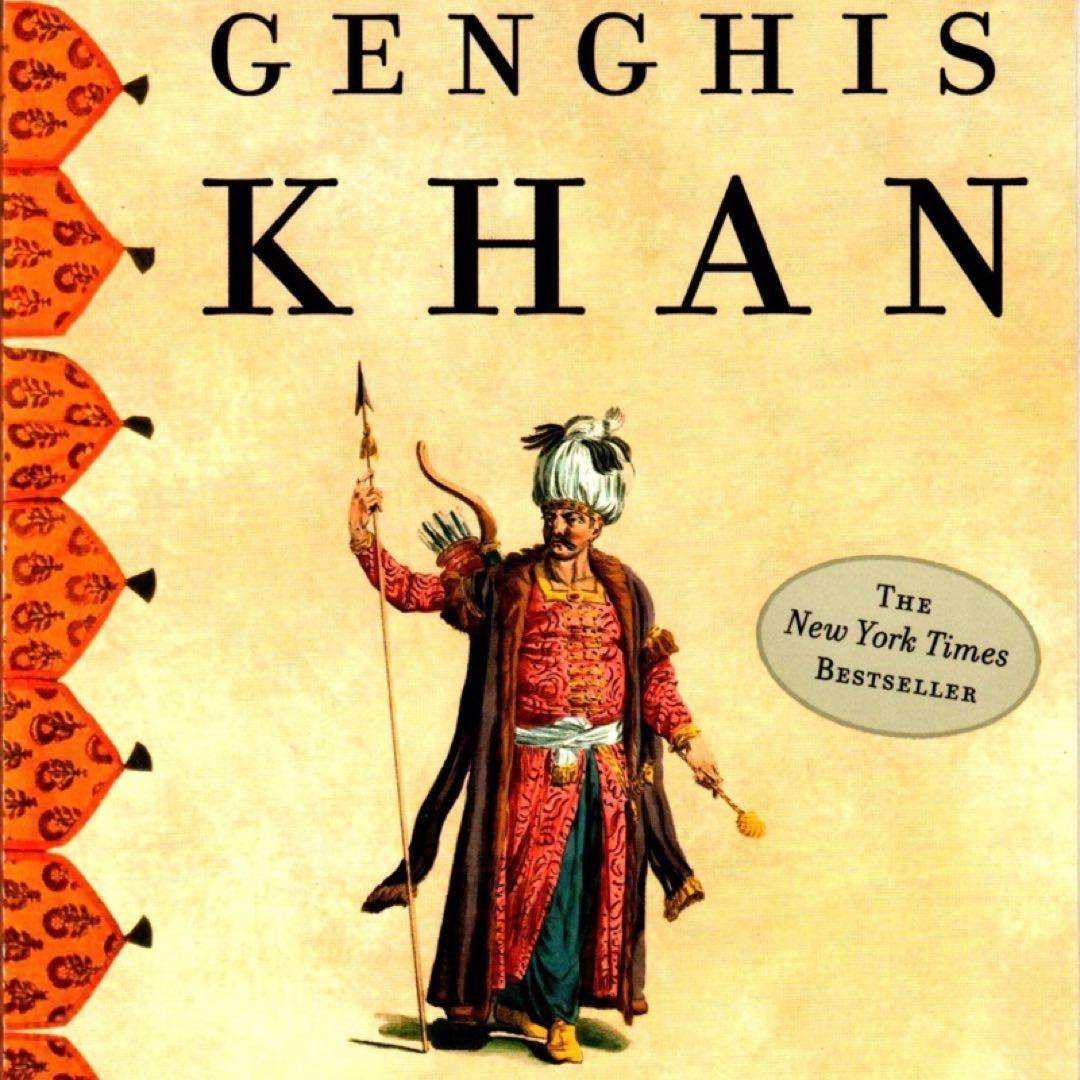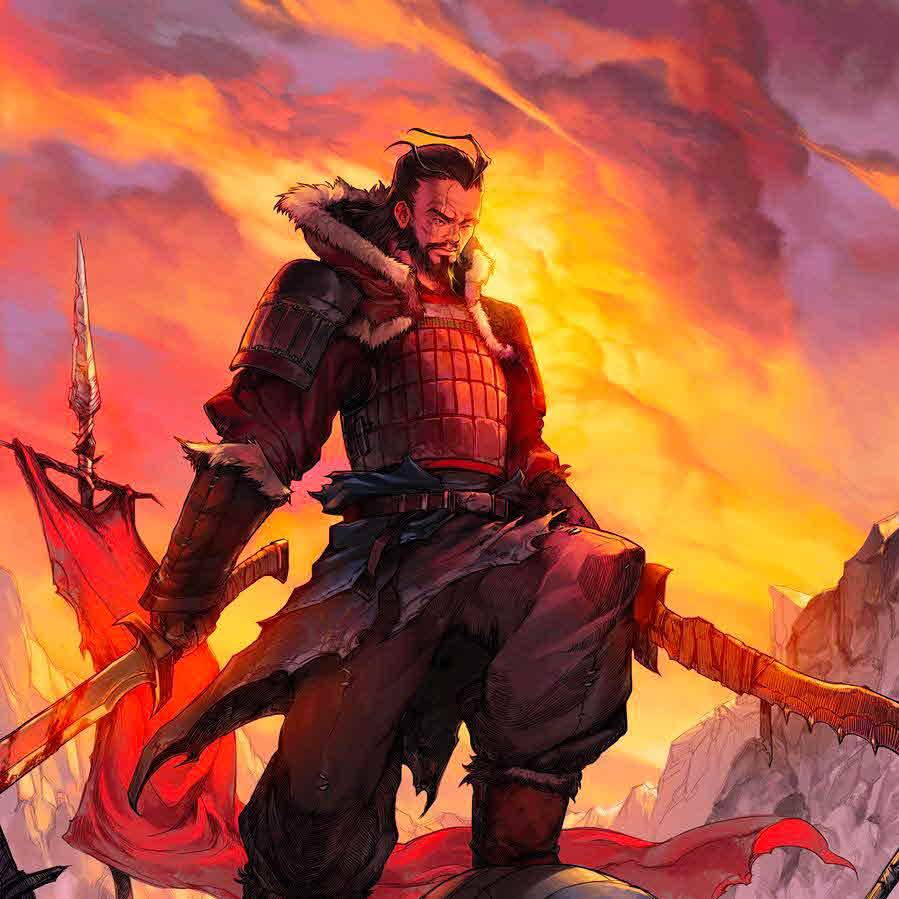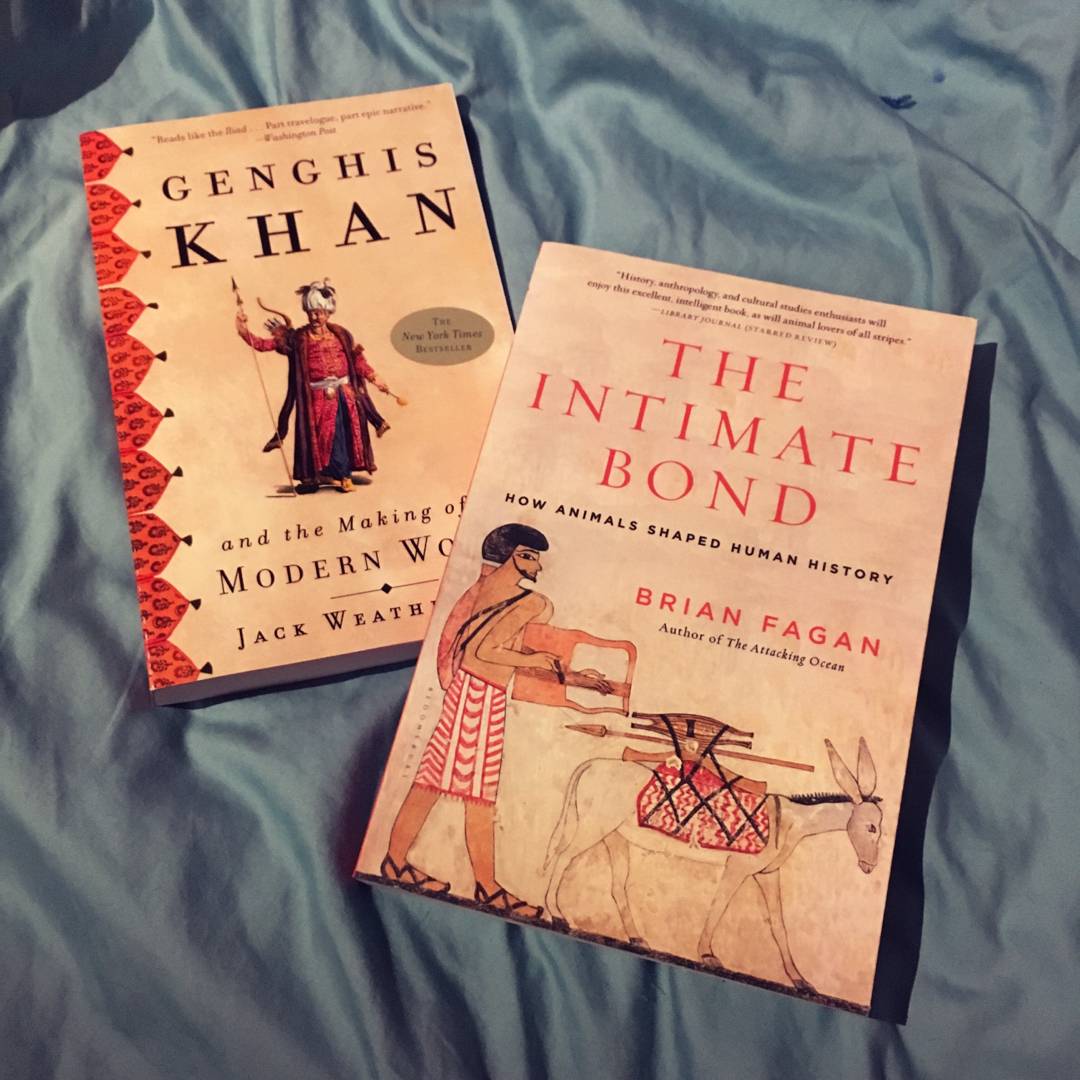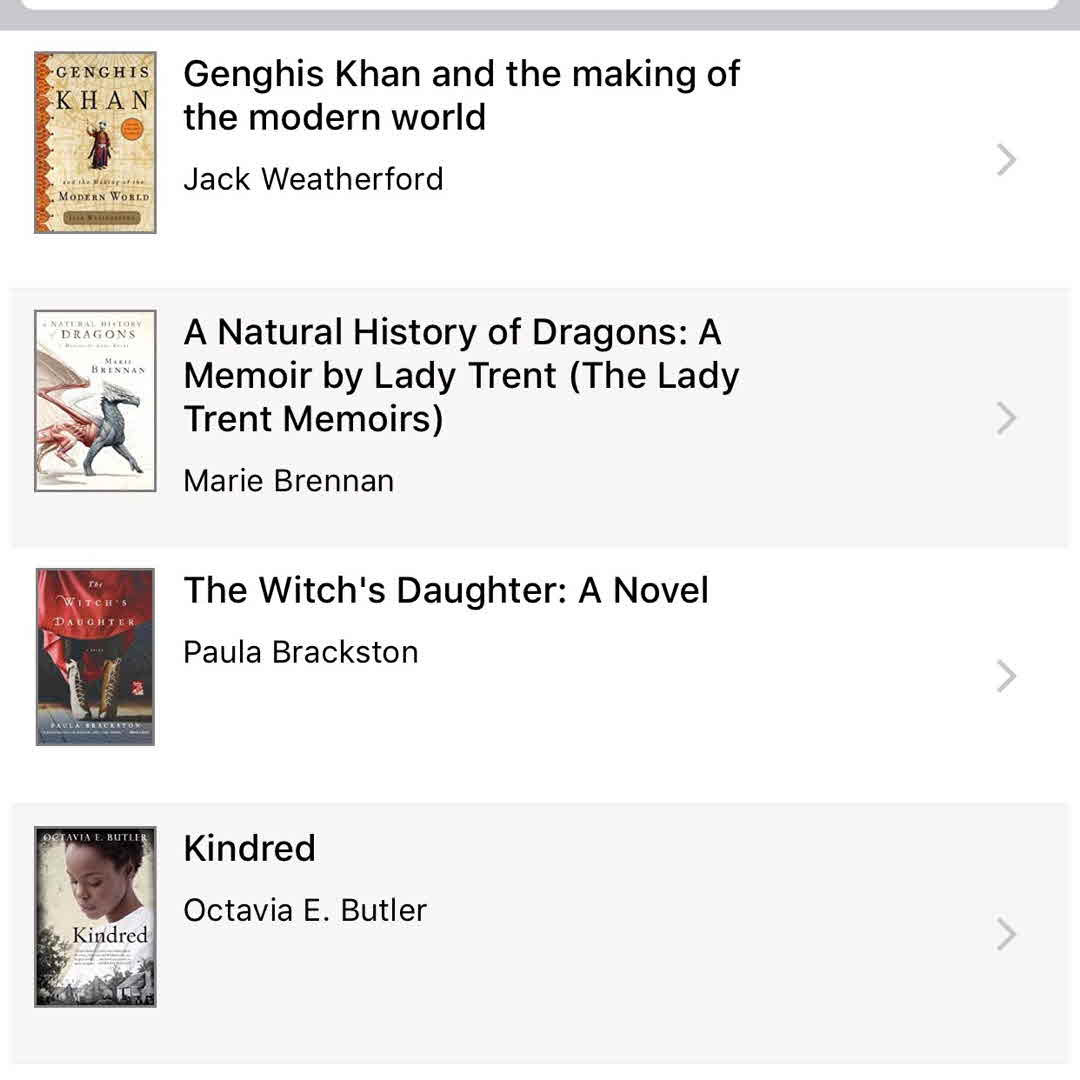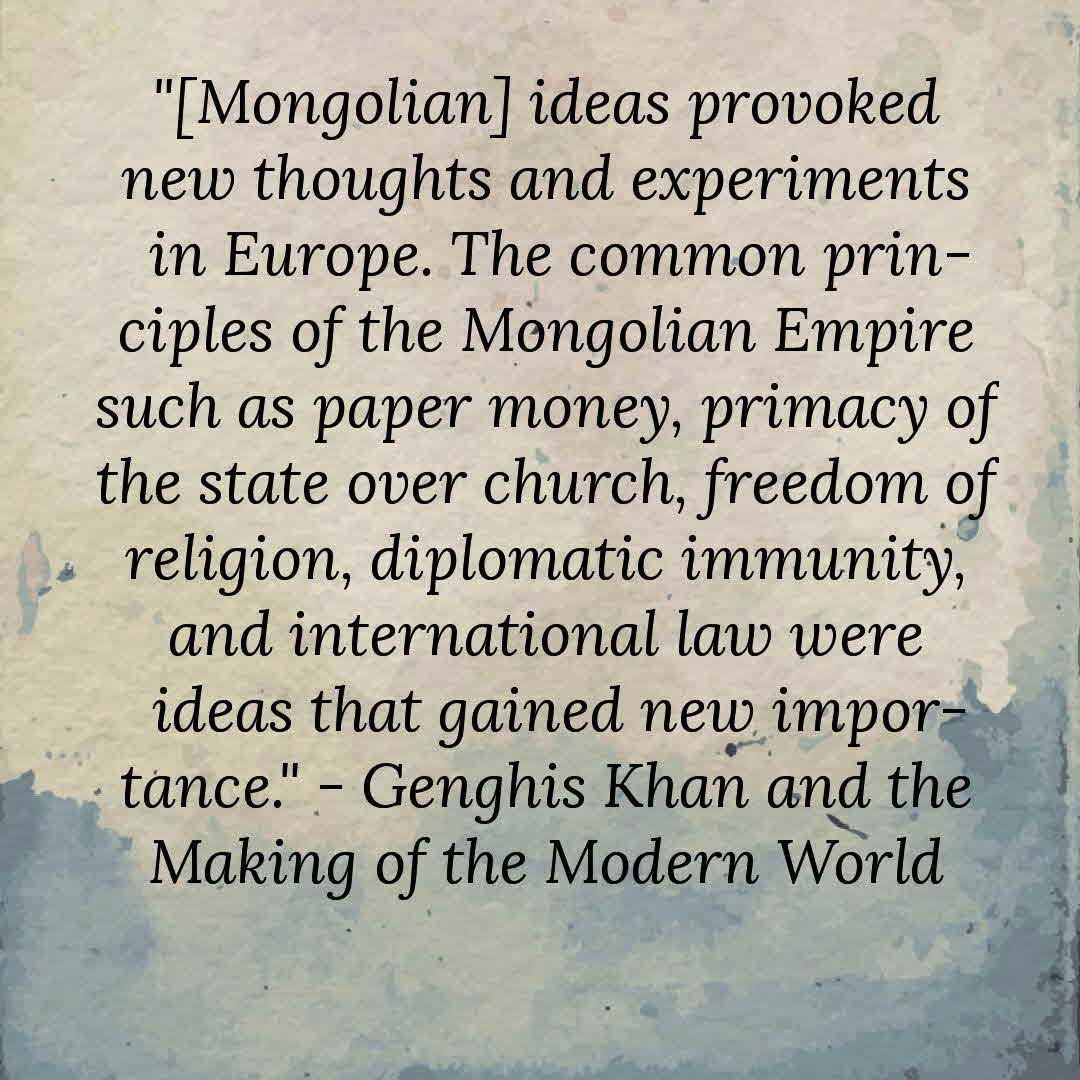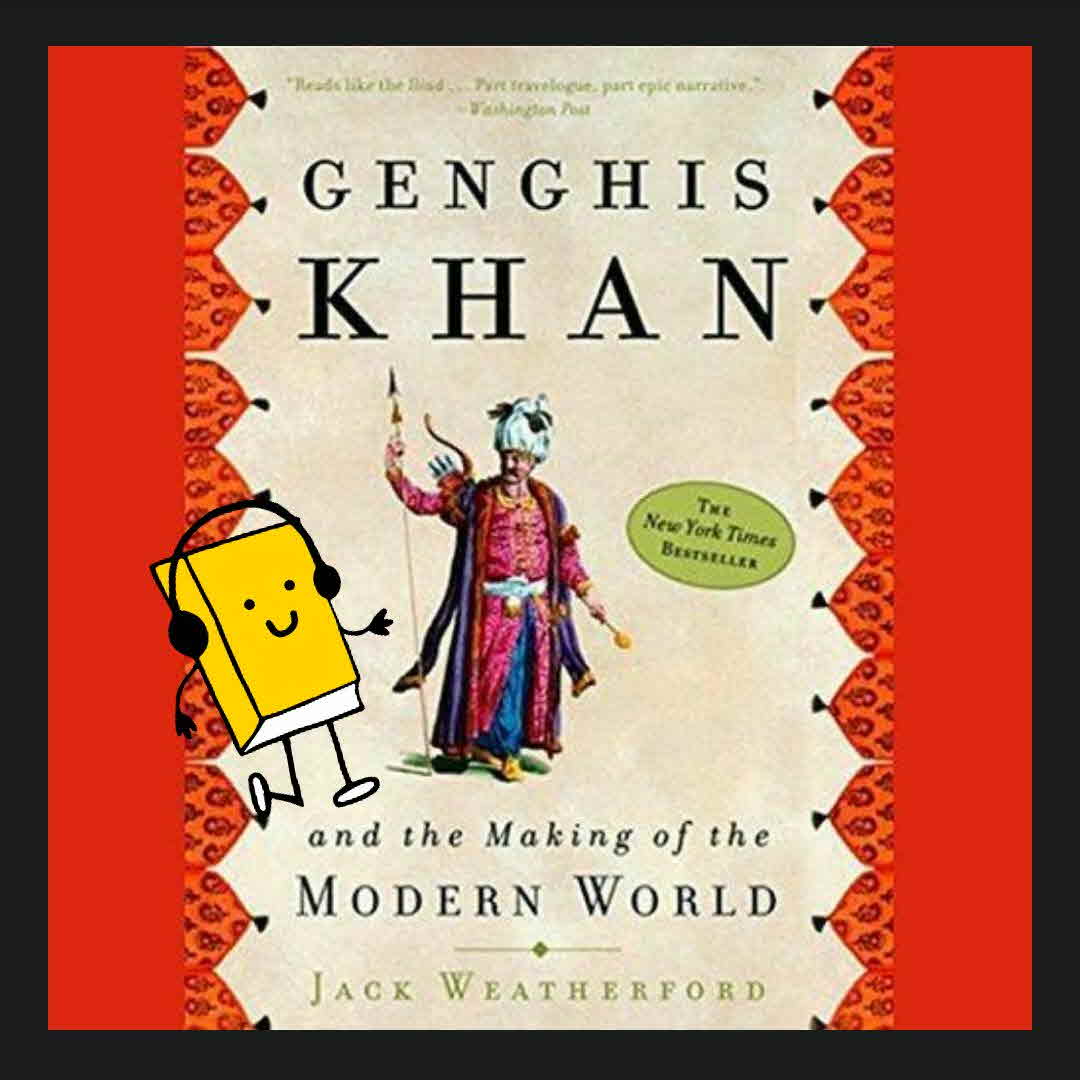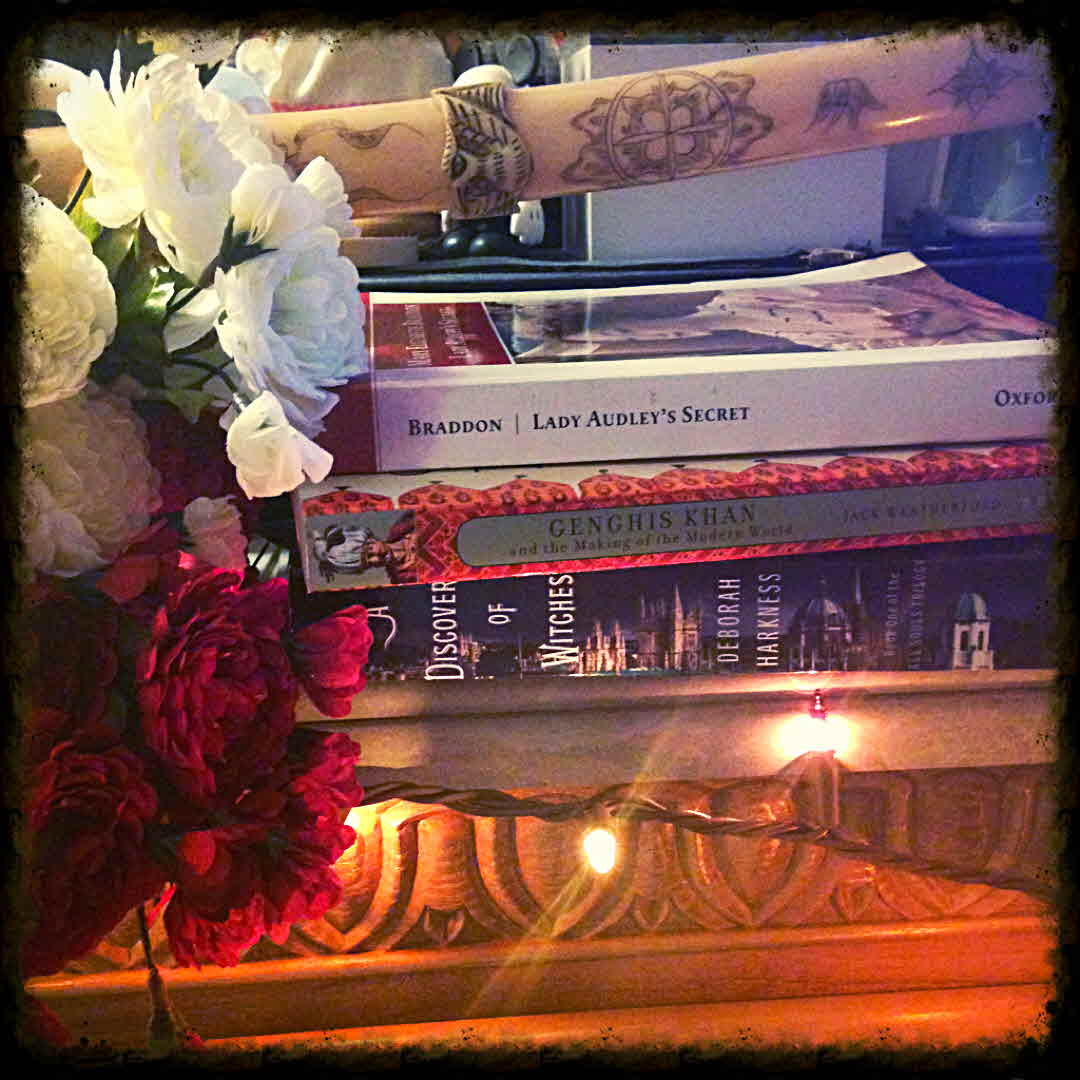Genghis Khan and the Making of the Modern World | Jack McIver Weatherford
The Mongol army led by Genghis Khan subjugated more lands and people in twenty-five years than the Romans did in four hundred. In nearly every country the Mongols conquered, they brought an unprecedented rise in cultural communication, expanded trade, and a blossoming of civilization. Vastly more progressive than his European or Asian counterparts, Genghis Khan abolished torture, granted universal religious freedom, and smashed feudal systems of aristocratic privilege. From the story of his rise through the tribal culture to the explosion of civilization that the Mongol Empire unleashed, this brilliant work of revisionist history is nothing less than the epic story of how the modern world was made. From Publishers Weekly Apart from its inapt title, Genghis Khan dies rather early on in this account and many of the battles are led by his numerous offspring. This book is a successful account of the century of turmoil brought to the world by a then little-known nation of itinerant hunters. In researching this book, Weatherford (Savages and Civilization), a professor of anthropology at Macalaster College, traveled thousands of miles, many on horseback, tracing Genghis Khan's steps into places unseen by Westerners since the khan's death and employing what he calls an "archeology of movement." Weatherford knows the story of the medieval Mongol conquests is gripping enough not to need superfluous embellishments�"the personalities and the wars they waged provide plenty of color and suspense. In just 25 years, in a manner that inspired the blitzkrieg, the Mongols conquered more lands and people than the Romans had in over 400 years. Without pausing for too many digressions, Weatherford's brisk description of the Mongol military campaign and its revolutionary aspects analyzes the rout of imperial China, a siege of Baghdad and the razing of numerous European castles. On a smaller scale, Weatherford also devotes much attention to dismantling our notions of Genghis Khan as a brute. By his telling, the great general was a secular but faithful Christian, a progressive free trader, a regretful failed parent and a loving if polygamous husband. With appreciative descriptions of the sometimes tender tyrant, this chronicle supplies just enough personal and world history to satisfy any reader. Copyright � Reed Business Information, a division of Reed Elsevier Inc. All rights reserved. --This text refers to an out of print or unavailable edition of this title. From School Library Journal Adult/High School�An interesting, thought-provoking account of the conqueror's life and legacy. From his early years as the son of a widow abandoned by her clan, he showed remarkable ability as a charismatic leader and unifier. In 25 years, his army amassed a greater empire than the Romans had been able to achieve in 400. Whether judged on population or land area, it was twice as large as that of any other individual in history. This colorful retelling discusses many of the innovations that marked Khan's rule and contributed to his success. Although his name is now erroneously associated with terror and slaughter, he showed surprising restraint during a time when few others in power did. He allowed freedom of religion, encouraged free trade, developed a paper currency, and observed diplomatic immunity. As he encountered new cultures, he adopted or adapted their best practices, and constantly updated his military strategies. Although Khan's death occurs at the midpoint of this book, the tales of his survivors' exploits and the gradual fall of the Mongol dynasties are engaging and informative. Weatherford's efforts to credit Genghis Khan and his descendants with the ideas and innovations that created the Renaissance are a bit bewildering, but readers will be left with a new appreciation of a maligned culture, and a desire to learn more.�Kathy Tewell, Chantilly Regional Library, VA Copyright � Reed Business Information, a division of Reed Elsevier Inc. All rights reserved. --This text refers to an out of print or unavailable edition of this title. From Booklist When the Mongols, led by Genghis Khan, exploded out of the central Asian steppes in the early thirteenth century, they began the acquisition of the largest land empire in history. Eventually, the Mongol Empire extended from the Pacific to the Mediterranean and from northern Siberia to Southeast Asia. Yet the West focuses primarily on Mongol savagery. In his revisionist history of the empire, anthropology professor Weatherford uses the so-called Secret History, a long-suppressed Mongol text, to balance the scales. He certainly makes some telling points. The Mongols unified disparate lands, maintained and even expanded east-west trade routes, and made possible eventual contact between Europe and East Asia. Although Mongol rulers were not innovators, Weatherford convincingly asserts that, like the Romans, they effectively used the talents of their subject peoples. Unfortunately, Weatherford is prone to exaggeration. He too easily accepts unverifiable legends as facts, and he gives the Mongols unwarranted credit for fostering the European Enlightenment. Still, this is a well-written and usually credible work that provides a necessary reassessment of the legacy of this vast empire. Jay Freeman Copyright � American Library Association. All rights reserved --This text refers to an out of print or unavailable edition of this title. Review "There is very little time for reading in my new job. But of the few books I've read, my favourite is Genghis Khan and the Making of the Modern World by Jack Weatherford (Crown Publishers, New York). It's a fascinating book portraying Genghis Khan in a totally new light. It shows that he was a great secular leader, among other things." �Manmohan Singh, Prime Minister of India �Reads like the Iliad. . . Part travelogue, part epic narrative.� �Washington Post �It�s hard to think of anyone else who rose from such inauspicious beginnings to something so awesome, except maybe Jesus.� �Harper�s �Weatherford�s lively analysis restores the Mongol�s reputation, and it takes wonderful learned detours. . . . Well written and full of suprises.� �Kirkus Reviews �Weatherford is a fantastic storyteller. . . . [His] portrait of Khan is drawn with sufficiently self-complicating depth. . . . Weatherford�s account gives a generous view of the Mongol conqueror at his best and worst.� �Minneapolis Star Tribune From the Inside Flap The name Genghis Khan often conjures the image of a relentless, bloodthirsty barbarian on horseback leading a ruthless band of nomadic warriors in the looting of the civilized world. But the surprising truth is that Genghis Khan was a visionary leader whose conquests joined backward Europe with the flourishing cultures of Asia to trigger a global awakening, an unprecedented explosion of technologies, trade, and ideas. In Genghis Khan and the Making of the Modern World, Jack Weatherford, the only Western scholar ever to be allowed into the Mongols? ?Great Taboo??Genghis Khan?s homeland and forbidden burial site?tracks the astonishing story of Genghis Khan and his descendants, and their conquest and transformation of the world. Fighting his way to power on the remote steppes of Mongolia, Genghis Khan developed revolutionary military strategies and weaponry that emphasized rapid attack and siege warfare, which he then brilliantly used to overwhelm opposing armies in Asia, break the back of the Islamic world, and render the armored knights of Europe obsolete. Under Genghis Khan, the Mongol army never numbered more than 100,000 warriors, yet it subjugated more lands and people in twenty-five years than the Romans conquered in four hundred. With an empire that stretched from Siberia to India, from Vietnam to Hungary, and from Korea to the Balkans, the Mongols dramatically redrew the map of the globe, connecting disparate kingdoms into a new world order. But contrary to popular wisdom, Weatherford reveals that the Mongols were not just masters of conquest, but possessed a genius for progressive and benevolent rule. On every level and from any perspective, the scale and scope of Genghis Khan?s accomplishments challenge the limits of imagination. Genghis Khan was an innovative leader, the first ruler in many conquered countries to put the power of law above his own power, encourage religious freedom, create public schools, grant diplomatic immunity, abolish torture, and institute free trade. The trade routes he created became lucrative pathways for commerce, but also for ideas, technologies, and expertise that transformed the way people lived. The Mongols introduced the first international paper currency and postal system and developed and spread revolutionary technologies like printing, the cannon, compass, and abacus. They took local foods and products like lemons, carrots, noodles, tea, rugs, playing cards, and pants and turned them into staples of life around the world. The Mongols were the architects of a new way of life at a pivotal time in history. In Genghis Khan and the Making of the Modern World, Jack Weatherford resurrects the true history of Genghis Khan, from the story of his relentless rise through Mongol tribal culture to the waging of his devastatingly successful wars and the explosion of civilization that the Mongol Empire unleashed. This dazzling work of revisionist history doesn?t just paint an unprecedented portrait of a great leader and his legacy, but challenges us to reconsider how the modern world was made. --This text refers to an out of print or unavailable edition of this title.

